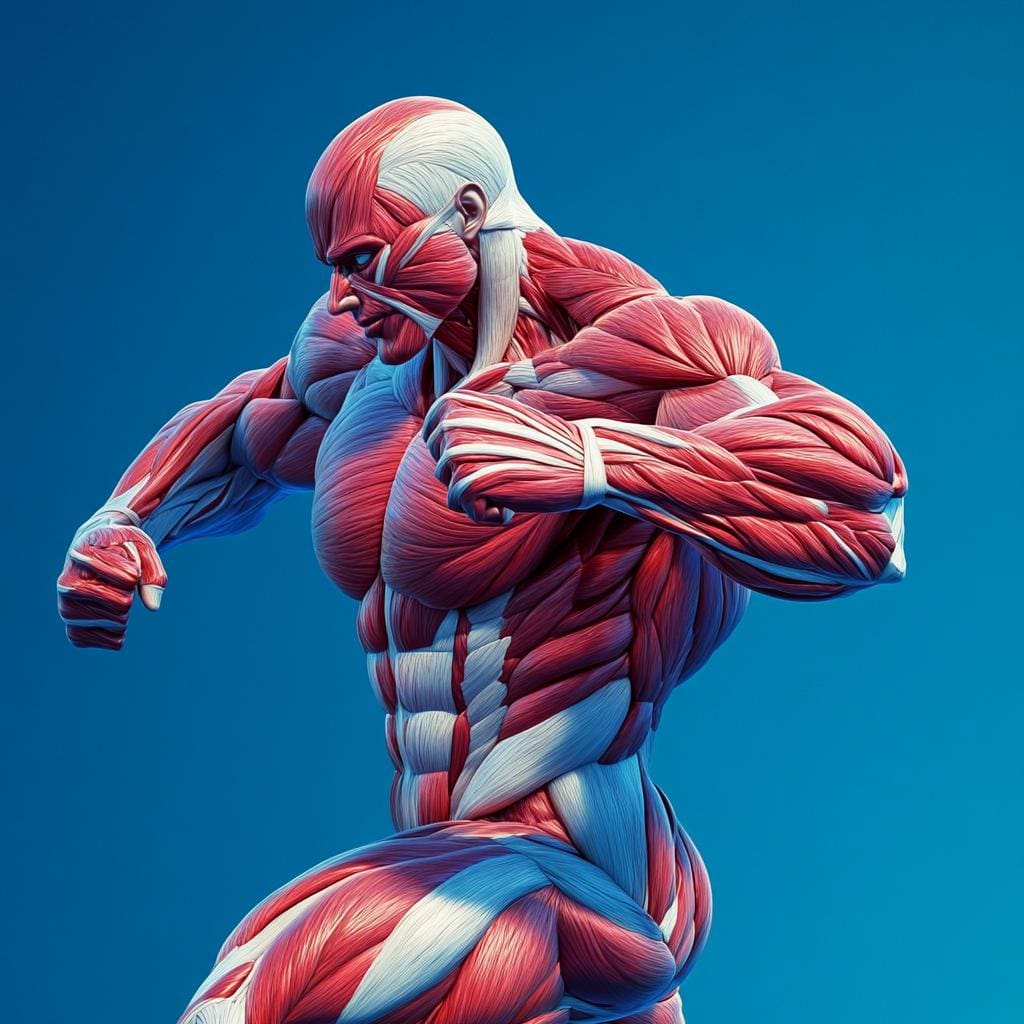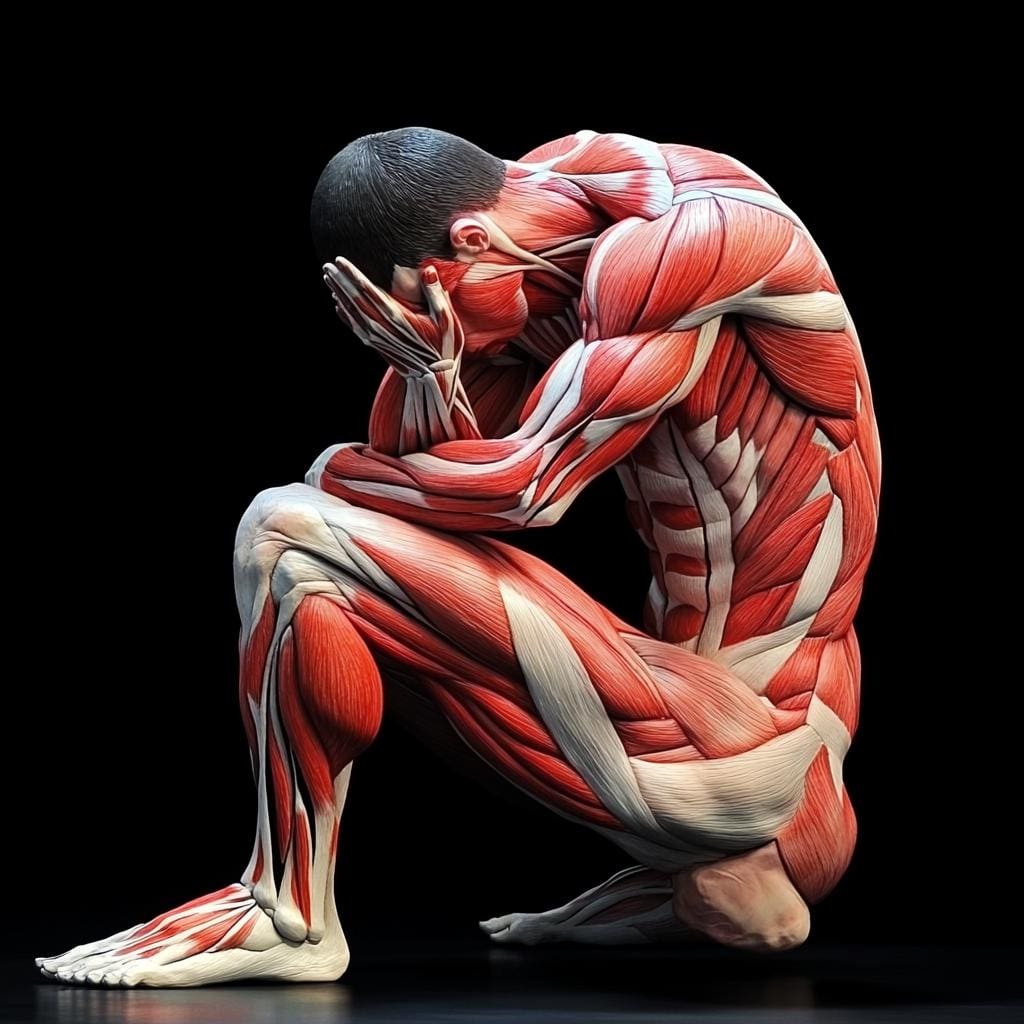In a groundbreaking study from the University of Quebec, researchers explored muscle soreness and recovery between vegans and meat-eaters. Featuring 27 participants from each group, all women with no athletic training, the study aimed to determine if diet influences post-workout recovery. Both groups performed four sets of leg presses, chest presses, leg curls, and arm curls. The study, still hot off the press and ahead of its official journal release, might ruffle some feathers among meat enthusiasts with its thought-provoking findings. Dive into the intricacies of this research and discover who fares better in muscle recovery after intense workouts!
Welcome to our latest blog post, where we dive into the compelling realm of nutrition and athletic performance. Today, we’re dissecting a groundbreaking study as discussed in the YouTube video titled “New Study: Vegan vs Meat Eater Muscle Soreness and Recovery.” Hosted by Mike, the video takes us through the intricacies of a fresh-off-the-press study that pits vegans against meat eaters in a showdown of muscle recovery.
Mike kicks things off by reflecting on his anticipation for such research ever since the spotlight shone on plant-based diets with documentaries like ”The Game Changers.” This specific study, conducted by the University of Quebec and Migel University in Canada, probes into how dietary habits influence delayed onset muscle soreness (DOMS) and recovery post-exercise. The aim? To find out if vegans recover faster or experience less soreness compared to their meat-eating counterparts.
As Mike walks us through the methodology, the intrigue deepens. The study, featured in the International Journal of Sports Medicine, observes 54 women—27 vegans and 27 meat eaters, all non-athletes—over a single, challenging workout session involving leg presses, chest presses, leg curls, and arm curls. Through careful analysis and comparison, this research sheds light on whether a plant-based diet might just give you an edge when it comes to bouncing back from a strenuous workout.
Mike’s passion for the subject is palpable, even as he moderates his volume out of consideration for his Barcelona neighbors—where he’s currently based. So, let’s delve into this fascinating investigation that might just stir up some “sore” feelings among meat eaters, and unravel the science behind muscle soreness, nutrition, and recovery. Ready to embark on this scientific journey? Let’s go!
Insights from the Recent Study on Muscle Recovery

The study, conducted by researchers from the University of Quebec and Migel University in Canada, examined muscle recovery in vegans versus meat eaters after a challenging workout. This study is particularly noteworthy as it involved 27 vegans and 27 meat eaters, ensuring participants were on their respective diets for at least two years. With a focus on delayed onset muscle soreness (DOMS), they scrutinized recovery metrics post a standardized workout consisting of:
- Leg Press
- Chest Press
- Leg Curls
- Arm Curls
Each exercise was performed over four sets of ten reps, a strategic choice based on research suggesting optimal training benefits with minimal redundancy. The study’s findings may stir some surprise as they highlight a trend toward potentially quicker recovery times and less muscle soreness among vegans. The following table summarizes the key outcome measures observed:
| Vegans | Meat Eaters | |
|---|---|---|
| Muscle Soreness (DOMS) | Lower | Higher |
| Recovery Time | Quicker | Slower |
Understanding the Methodology: How Researchers Compared Vegans to Meat Eaters

To delve into this comparison, researchers from **University of Quebec** and **Migel University** conducted an insightful study published in the *International Journal of Sports Medicine*. The participants were split into two groups: **27 vegans** and **27 meat eaters**, all women, who had adhered to their respective diets for at least two years. Here’s how they did it:
- Random selection to ensure unbiased comparison
- Participants were non-athletes to avoid training confounders
- Controlled workout: leg press, chest press, leg curls, and arm curls (4 sets of 10 reps each)
The study aimed to measure **delayed onset muscle soreness (DOMS)** and overall recovery after a workout session. Data collection was sophisticated, leveraging previous research methodologies and incorporating stringent peer-review protocols.
| Criteria | Vegans | Meat Eaters |
|---|---|---|
| Participants | 27 | 27 |
| Gender | Female | Female |
| Training | Non-athletes | Non-athletes |
| Workout Type | Leg Press, Chest Press, Leg Curls, Arm Curls | |
**Conclusion:** This design provided a robust framework to assess muscle recovery, potentially offering new insights into how diet influences athletic performance.
Mechanisms Behind Muscle Soreness: What Science Reveals

Understanding the science behind muscle soreness can shed light on the vegan vs meat eater muscle recovery debate. Delayed onset muscle soreness (DOMS) typically peaks 24-72 hours post-exercise and is often attributed to microscopic tears in muscle fibers. These tears trigger inflammation and a subsequent repair process, which is when we experience pain and stiffness. The ongoing study delves into whether dietary choices, such as a vegan or meat-based diet, affect this recovery phase.
In the study, researchers from the University of Quebec and Migel University observed that **vegans and meat eaters showed different responses to muscle soreness** and recovery from exercises like leg press, chest press, leg curls, and arm curls. The researchers measured various recovery metrics post-exercise, such as soreness levels, to identify if one group fared better. Intriguingly, the initial findings suggest a possible edge for vegans in managing soreness and speeding up recovery, possibly due to anti-inflammatory properties inherent in plant-based foods.
| Metric | Vegans | Meat Eaters |
|---|---|---|
| Initial Soreness (24 hrs) | Moderate | High |
| Recovery Time | Quick | Moderate |
| Inflammation Levels | Low | High |
Statistically Significant Findings: What They Mean for Athletes
The research conducted by the University of Quebec and Migel University revealed statistically significant findings that are pivotal for athletes. Upon delving into the realm of muscle recovery, the study uncovered that vegan participants showed less delayed onset muscle soreness (DOMS) compared to their meat-eating counterparts after performing a series of strength exercises. This discovery implies that a vegan diet might offer certain advantages in terms of muscle repair and soreness alleviation.
- Recovery Metrics: The study specifically measured soreness and recovery after a workout.
- Participants: 27 vegans and 27 meat eaters, all untrained women.
- Exercises: Four sets of 10 reps each for leg press, chest press, leg curls, and arm curls.
| Group | Soreness (24h post-workout) |
|---|---|
| Vegan | Lower Soreness |
| Meat Eater | Higher Soreness |
Delving into Delayed Onset Muscle Soreness: Definitions and Implications

Delayed onset muscle soreness (DOMS) is the discomfort or pain experienced in muscles several hours to days after unaccustomed or strenuous exercise. The recent study conducted by the University of Quebec and Migel University, and published in the International Journal of Sports Medicine, specifically chose participants who were either vegans or meat eaters for at least two years. The researchers sought to uncover differences in recovery and soreness levels between these two groups after a defined workout routine.
The study involved 27 vegans and 27 meat eaters, focusing exclusively on women who were not trained athletes. Each participant underwent a workout consisting of four exercises: leg press, chest press, leg curls, and arm curls—each with four sets of ten repetitions. The investigation centered on the question: ”Do vegans recover better and experience less soreness after such a workout compared to meat eaters?” The findings suggested notable differences, potentially challenging common assumptions about protein sources and muscle recovery.
- Participant Demographics: 27 Vegans, 27 Meat Eaters
- Exercises:
- Leg Press
- Chest Press
- Leg Curls
- Arm Curls
- Workout Structure: 4 sets of 10 reps
- Study Focus: Delayed Onset Muscle Soreness (DOMS)
| Group | Recovery Perception |
|---|---|
| Vegans | Potentially less soreness |
| Meat Eaters | Potentially more soreness |
In Retrospect
And there we have it, a fascinating dive into the world of muscle recovery comparing vegans and meat eaters, as explored in the recent study out of the University of Quebec and McGill University. From the meticulous methodologies employed to the insightful interpretations of the results, it’s clear that this research offers valuable perspectives on nutritional impacts on athletic performance, even among non-athletes.
Whether you’re a seasoned athlete, a fitness enthusiast, or someone simply interested in the nuances of diet and health, this study bridges a gap in knowledge, raising intriguing questions and opening new avenues for further exploration. It’s always enlightening to see how science evolves and shapes our understanding of the body and its capabilities.
As we reflect on the insights gained, let’s stay curious and open-minded, embracing the fact that each new study, like this one, brings us a step closer to optimizing our health and well-being, regardless of where we stand on the dietary spectrum. Stay tuned for more cutting-edge research reviews and discussions, as we continue to explore the science behind fitness and nutrition together. Until next time, take care of yourselves and keep pushing those boundaries!



